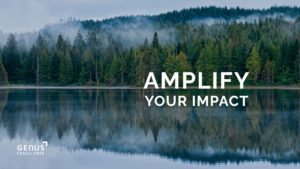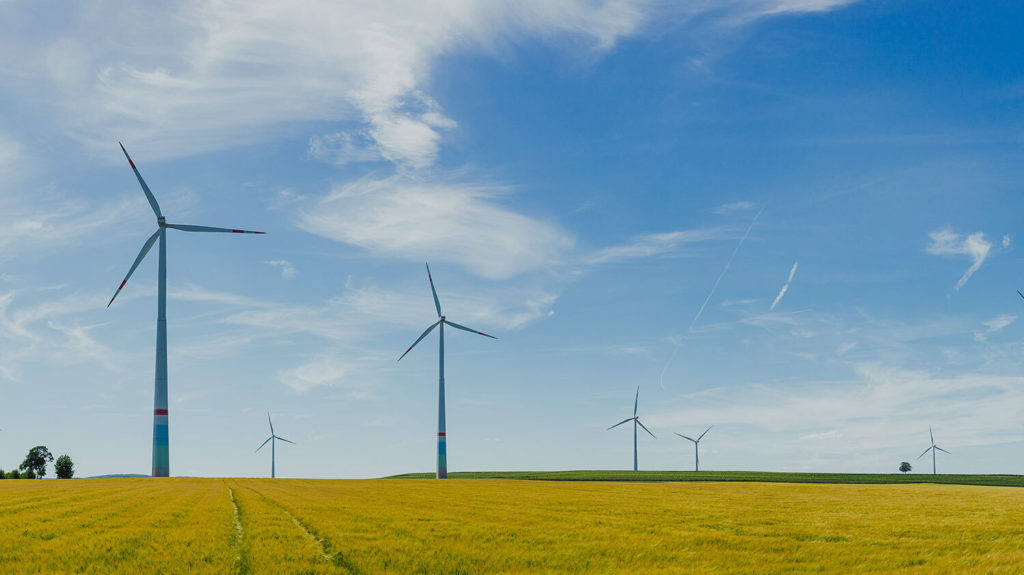Here’s a look at why Vestas is part of our impact investing-focused Genus Fossil Free High-Impact fund
Great companies know not only how to adapt to change but also how to anticipate it. Case in point: Vestas Wind Systems A/S has been anticipating the winds of change (and climate change) for over 120 years: what started in the late 19th century as a blacksmith shop in small-town Denmark has evolved into one of the world’s leading suppliers of sustainable energy solutions, with more than 113 GW of wind turbines in 81 countries around the world.
That commitment to sustainable energy is why Vestas has been an integral part of our impact investing-focused Genus Fossil Free High-Impact fund for over a year now.
The clean draw of wind
Throughout the 20th century, Vestas’s business evolved — from blacksmith shop to industrial window frame manufacturer to makers of milk urn coolers and hydraulic cranes. But by the 1970s, as oil prices went through the roof — and interest in renewable energy took hold — Vestas began to experiment with wind turbine technology. In 1979, Vestas sold and installed its first turbine.
So what’s the draw of wind? In a nutshell: there’s an endless and cheap supply of it, which makes it a leading source of clean, renewable energy. Thanks to the Paris Climate Agreement, countries all around the world are now committed to reducing their greenhouse gas emissions, and Denmark is leading the charge in tackling climate change with a targeted 70% reductions by 2030.
Globally, the wind energy market was valued at over $93 billion (U.S.) in 2019 — with a projected compound annual growth rate of 8.4% between 2020 and 2026, according to Global Market Insights
While there has been criticism about some aspects of wind turbine power — including that land-based wind projects are often in remote locations (requiring extensive transmission lines bringing power to people) — much has been done to mitigate these issues through design and infrastructure improvements, as well as better waste-management systems.
Vestas, for one, is committed to doing its part promising to become a carbon-neutral company by 2030 (without using any carbon offsets) and producing zero-waste wind turbines by 2040. As the leading wind turbine manufacturer in the world — responsible for almost 10 gigawatts of global wind capacity — Vestas is well-positioned to inspire industry-wide change.
An ideal impact investment
It’s that position of market leadership that drew Mike Thiessen, Genus’ Director of Sustainable Investments, to Vestas Wind. “Vestas sells about 18% of wind turbines around the world. Stats like that are a big deal to our clients.”
For the Genus High-Impact Equity Fund, Genus selects from a universe of between 200 and 250 companies that have a high net-positive impact on sustainable development around the world. “We refresh the list every quarter, or as needed, to ensure that we can continue to label them as impactful,” says Thiessen. Genus calculates net impact based on the percentage of revenue a company is generating from an impactful activity — something that’s contributing toward the UN sustainable development goals (SDGs) — and subtracts that from revenues generated from activities that detract from the SDGs.
As Thiessen sees it, Vestas represents a “100% impact investment”: a perfect opportunity to influence the market for renewable energy. “They’re creating and designing wind turbines, which really align with the kind of climate action thesis that a lot of our clients have.”
Beyond clean energy generation, Thiessen applauds Vestas’ efforts at waste management within their sector. “That’s often a big argument against renewable energy — that there’s a lot of emissions in creating wind turbines or solar panels. It’s great to see that Vestas is trying to reduce the amount of emissions, and reduce their waste through manufacturing.”
Carbon intensity is key
For investors looking for a socially conscious investing strategy — particularly one committed to fighting climate change — Thiessen says it’s critical to look at the total carbon intensity of any sustainable investment fund. And look for energy companies that are 100% committed to renewables.
“You’ll often find funds that will still have oil and gas in there, or railways,” says Thiessen. “Especially Canadian funds, which are very high carbon intensity. If you’re really passionate about climate action, it makes sense to divest from all the oil and gas companies and make clean-energy companies, like Vestas, a cornerstone of your sustainable investment strategy.”
Get in touch if you’d like to explore how investing in companies like Vestas can make a positive impact on your investment portfolio.

Celebrating Innovating Women in Sustainable and Impact Investing













